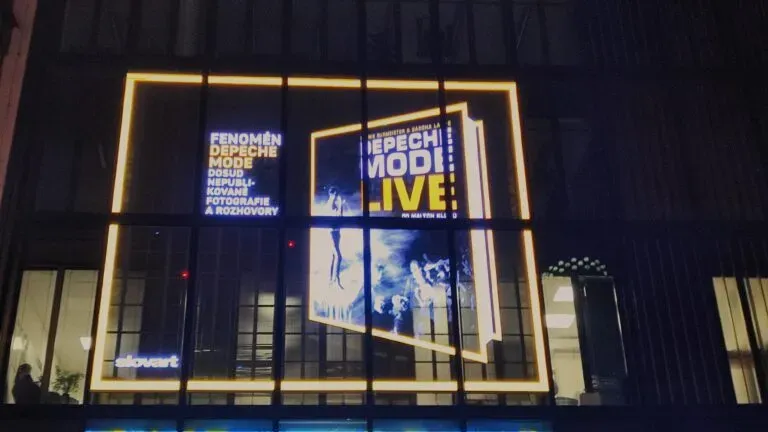The evolution of digital screens in the advertising industry in 2024
Marketing digital screens and tools are attractive for many parameters: the ability to quite accurately track their effectiveness, the promptness and relative ease of making adjustments, the ability to create personalized offers, and much more.
It is not surprising that advertisers, having felt the advantages of online placements, are questioning the measurability and manageability of offline channels, and the latter, in turn, are seeking to prove their competitiveness. Creating an integrated space where online and offline channels are combined is the dream of many marketers.
Early stages of development
The first digital signage appeared as simple LED signs that could only display text information. However, with the development of technology, these screens began to support graphics and video. The growing demand for dynamic advertising contributed to the improvement of display technologies.
Digitization of outdoor advertising
Outdoor advertising, which we discuss below, is actively undergoing a process of digitization – the integration of digital technologies. The concept of DOOH (Digital Out of Home) – digital advertising outside the home – is becoming increasingly common in professional terminology.
Thanks to digital technologies, outdoor advertising is transforming into a rapidly growing modern media channel with transparent media metrics. We are witnessing how outdoor advertising and digital begin to work together, combining offline and online into a clear and predictable ecosystem.
Advantages and prospects of DOOH advertising
The main advantages of Digital Out Of Home (DOOH) advertising are the ability to quickly update interactivity, and high image quality. Indoor TV software software allow for the creation of comprehensive advertising campaigns that cover both indoor and outdoor spaces.
Digital Signs systems provide centralized control over a network of screens, enabling the optimization of advertising expenses and enhancing campaign effectiveness. DOOH Networks and Display Solutions allow advertisers to precisely measure performance metrics and adjust strategies in real time.
Technologies that allow effective planning and tracking of outdoor advertising performance
Technologies that allow effective planning and tracking of outdoor advertising performance are becoming increasingly important for the advertising industry. While the proliferation of digital signs and digital advertising is evident to all, this trend is crucial for professionals in the advertising and marketing fields. Advertising and media agencies, as well as advertisers, are primarily interested in effective planning and flexible, accurate analysis of advertising performance. Therefore, their attention is focused on integrating technological solutions that provide these capabilities.
The use of big data in outdoor advertising
This involves the application of big data – information about users, including socio-demographic characteristics (gender, age, income level, etc.), interests, and spatial movements. These data, kept in anonymized form, are held by companies like Google. The data is formed based on users’ interaction history with maps, search engines, email, and other services. They have long been used in digital advertising, making it predictable, manageable, and precise.
Data sources for outdoor advertising
Regarding outdoor advertising, two main sources of such data can be identified. Firstly, there is Google. Secondly, there are mobile operators who also possess information about the audience and its movements.
Using these data, one can determine with fairly high accuracy which audience sees the advertising surface. For example, in the morning and evening, a certain structure may be seen mainly by working men and women with a certain income level and interest groups. During the day, the same surface may be seen mainly by homemakers with entirely different preferences and interests.
Improvement of technologies for outdoor advertising
Modern Digital Signage systems, such as digital signs software and digital signage players, allow customizing content according to audience data. This increases the effectiveness of advertising campaigns, making them more targeted and relevant.
Digital signs software and digital signage players
A key component of digital signage is digital signs software and digital signage players. Early versions of such software were simple and limited to playing video. Modern solutions have significantly advanced, offering remote content management, interactive functions, and support for multimedia formats.
Integration of digital signs in shopping centers
Shopping center media facades have become an important part of the architecture of modern shopping centers. Huge screens are integrated into the building facades, creating impressive visual effects that attract visitors. The Digital Signs system allows updating content in real time, ensuring the relevance of information.
Development of digital signage control systems
Modern digital signs systems allow not only the management of individual screens but also entire networks. This includes Indoor TV software used indoors that covers outdoor advertising. Display Solutions systems include comprehensive tools for planning, distributing, and analyzing the effectiveness of advertising campaigns.
Video advertising and DOOH networks
Video advertising has become one of the most effective forms of communication with the audience. Networks allow advertisers to reach a wide audience through large-format displays located in strategically important places. LED software and LED screen software enable the adaptation of content to different screen formats and ensure high display quality.
Future prospects
Innovations in artificial intelligence and machine learning are opening new possibilities for audience personalization and targeting. LED software and LED screen software continue to improve, providing even better image quality and broader possibilities for creative solutions.
In the future, we can expect even closer integration of digital and traditional advertising channels, creating a unified, efficient ecosystem for audience interaction. Digital advertising continues to evolve, opening new horizons for businesses and marketers.
The evolution of digital screens in the advertising industry vividly shows how modern technologies are transforming ways of interacting with the audience. From simple LED signs to complex interactive systems – digital advertising is paving the way to a new era of communications. It not only opens new opportunities for businesses but also makes communication with customers more efficient, accurate, and personalized.
The future of outdoor advertising looks exciting, as the integration of artificial intelligence and big data promises increased targeting accuracy and greater impact of advertising messages. In this constantly changing world, digital signs becomes not just a tool but a true bridge between brands and their audience, providing a visual, interactive, and unforgettable experience.
Advision — Content Management System for remote management and media planning of broadcast video and audio content. We help offline businesses and advertising companies automate workflows and implement a robust Digital Signs infrastructure using our proprietary software and hardware solutions.
Contact us, and we will help you implement the most modern technologies to solve your problems!
Share the news




















